Vitamins and supplements are two distinct types of nutrients that often get lumped together, but they play various roles in maintaining the health of your kitty. While vitamins are organic compounds essential for various bodily processes, supplements can include a range of substances, from minerals to amino acids that address specific health issues.
When we talk about our furry friend’s health and well-being, “cat vitamins” are essential. These little wonders of organic materials are very important for your kitty’s growth, immune system, and even their eagle-eyed vision! They might face some serious health issues if they miss out on these vital nutrients.
Now, on the flip side, we have “cat supplements”. These are made to be used for particular areas such as digestion and giving a dull coat shine. And the best part? They come in fun forms! From tasty chews, easy-to-mix powders, and liquids, it’s all about giving your cat that little bit of extra oomph!
Just like we humans can feel a bit off when we’re missing vital nutrients, cats are no different. Our kitty companions require a balance of vitamins to keep them purrfect. When they lack these, it can lead to a range of health issues. For example, a deficiency in Vitamin A can affect their eyesight, while a lack of Vitamin E can make their coat lose its shine. Just as we might reach for a Vitamin C boost when we’re sick, cats need their specific set of vitamins to have a robust immune system.
Stick around to find out how to take your cat’s health to the next level!
What is The Difference Between Cat Vitamins and Cat Supplements?
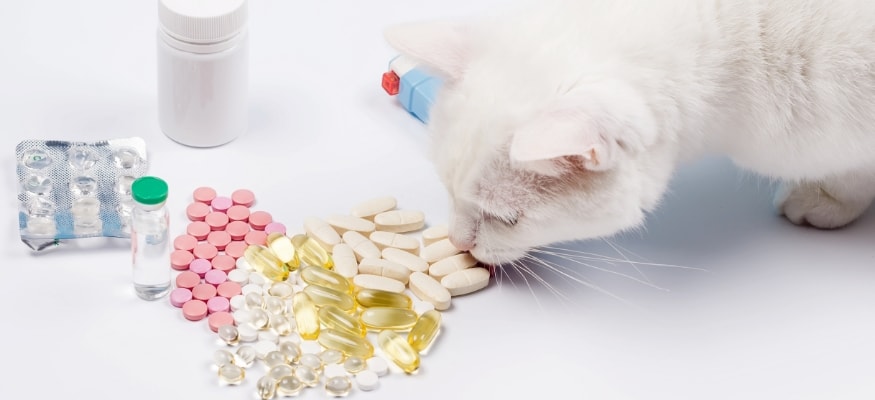
The difference between cat vitamins and supplements is in their composition and what their purpose is.
Vitamins are organic compounds essential for bodily functions like growth and immune function. They’re usually required in small amounts for basic functioning and are important for the overall well-being of your kitty friend.
Supplements can include a range of things including, minerals, amino acids, and fatty acids. These address specific issues your cat may have with any health issues or deficiencies. Vitamins are great for general health, supplements are great for addressing specific aspects of your cat’s well-being.
I think that both are just as important as the other, thus it’s important to do your research.
What Are Cat Vitamins?
Cat vitamins are those organic compounds that are essential for keeping the health of your cat on the right course. Vitamins for cats are so important for several bodily functions, including growth, immune system support, and vision. Lack of a complete vitamin can lead to deficiencies and health issues, making it doubly important to make sure your cat is getting a well-balanced diet and vitamins.
What Are the Types of Vitamins for Cats?
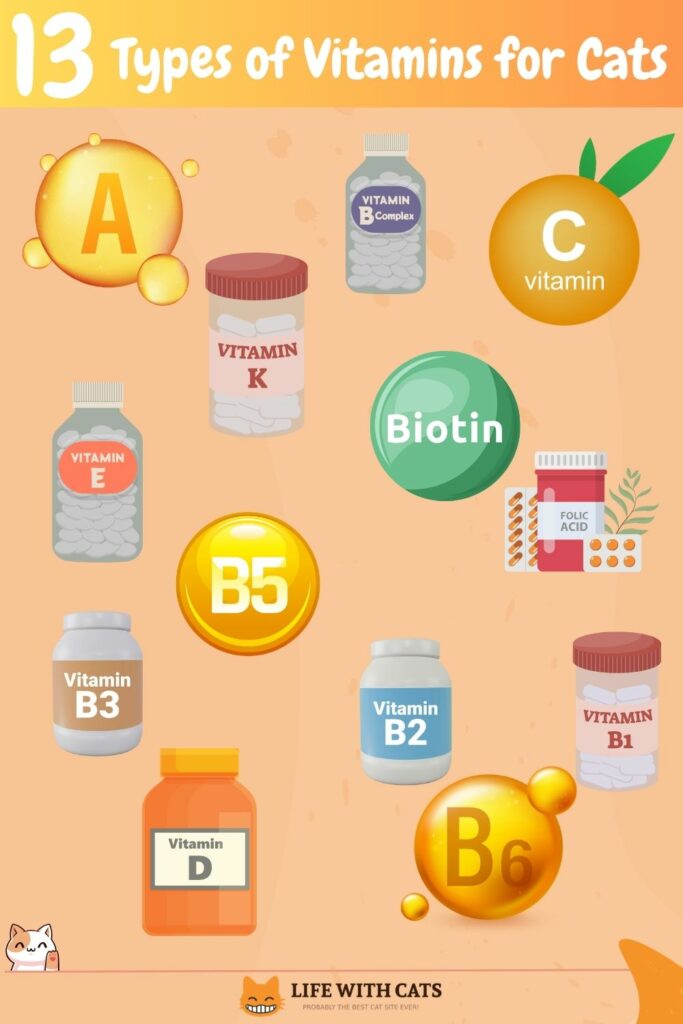
So, you’re wondering about the best vitamins for your purr-fect pal? Vitamins are essential to various bodily functions like vision, bone health, and overall wellness. Multivitamins are a popular choice among pet lovers and they often include important vitamins such as Vitamin A, D, and E. Some are daily supplements, while others might be more occasional boosts when fluffy seems to need it. Always check with your vet for the best advice on frequency and timing. Whether you’ve got a playful kitten, or a sweet senior, vitamins can offer an extra layer of support.
Keep in mind that over-supplementation can be harmful, causing things like toxicity. Always make sure to consult with your vet before giving any supplements as they can best help you find what works for your cat.
Vitamin A
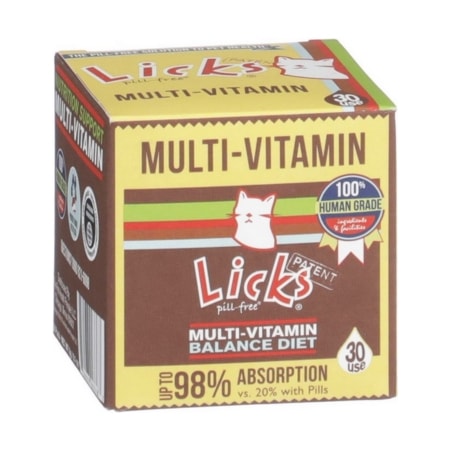
Vitamin A is essential for cats and plays a very important role in maintaining their vision, growth, and immune functions. It contributes to the proper functioning of the heart, lungs, kidneys, and other organs. Unlike some animals that can convert beta-carotene from plant-based foods into Vitamin A, cats require a direct source, typically found in animal tissues, especially the liver.
Vitamin C
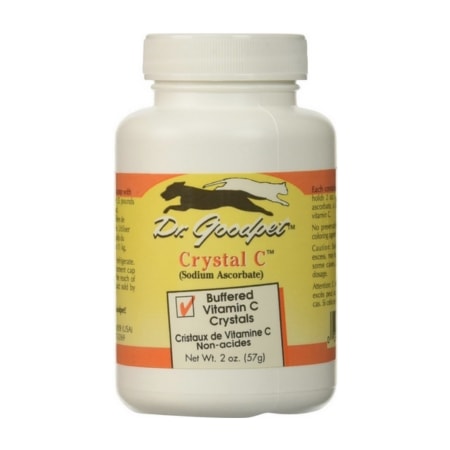
This is an essential nutrient for many creatures, but cats have a rather unique relationship with it. Cats usually produce Vitamin C in their liver, which aids in various functions such as collagen formation, iron absorption and immune system support. They typically don’t require it in their diet.
Vitamin D
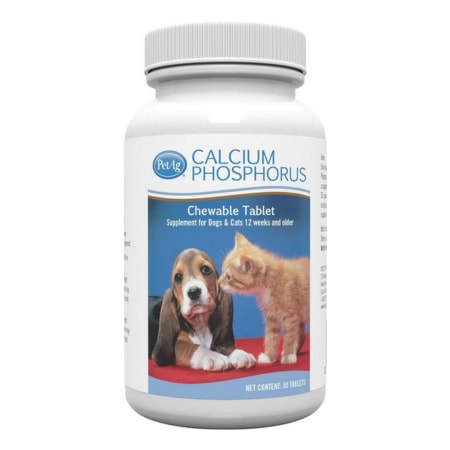
Vitamin D is important for functions such as muscle movement and immune function. Most cats obtain what they need from their diet, especially if fed high-quality food as these foods are usually formulated with what a cat needs in mind.
Vitamin E
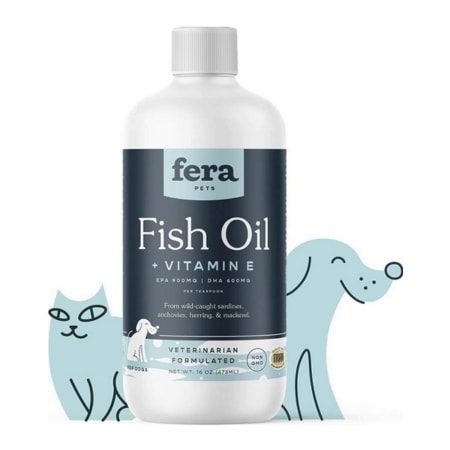
Vitamin E is a powerful antioxidant that helps protect the cells in you and your cat’s body from damage by free radicals. It’s important for cats, aiding them in immune function, skin health and vision. It also plays some part in the process for metabolism.
Vitamin K
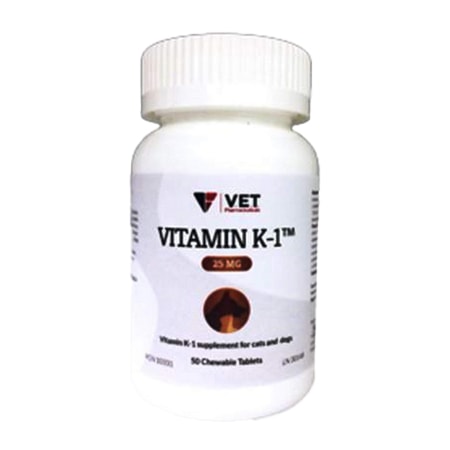
Vitamin K plays a pivotal role in a cat’s health by aiding the blood clotting process, which prevents excessive bleeding. In terms of their diet as with other vitamins on this list, they typically get enough of what they need through a high-quality diet. It’s uncommon for cats to need Vitamin K and excessive amounts can be harmful.
Biotin
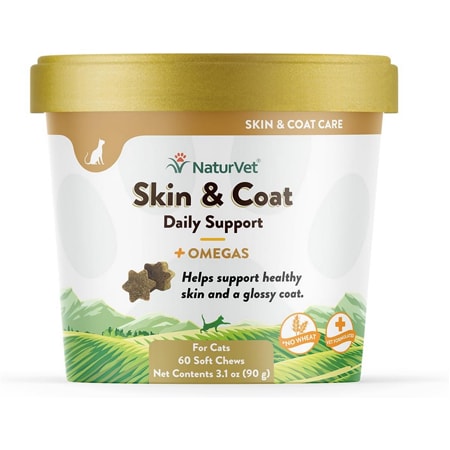
Biotin plays a major role in maintaining the health of a cat’s skin and coat. Just like with humans where we can use Biotin for our skin, hair, and nails, cats need it as a deficiency can lead to hair loss, dermatitis or a dull coat.
Folic Acid
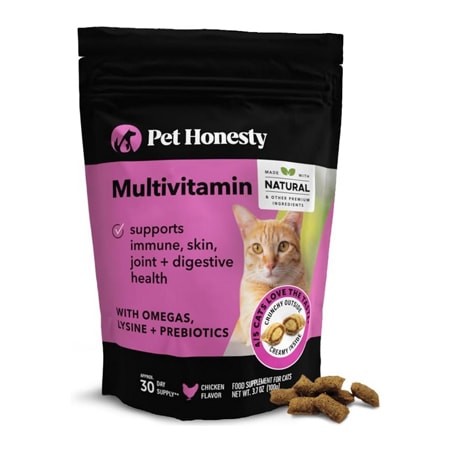
Folic Acid is a bit like a superhero for cats. It’s important for them, aiding in creating DNA and sprouting new cells to ensure they’re fit and active kitties. If you’ve got a mama cat expecting little kittens, folic acid helps those fur babies grow healthily inside her. Although many cat foods are made with these things in mind, there are instances where a cat may need an extra boost.
Vitamin B Complex
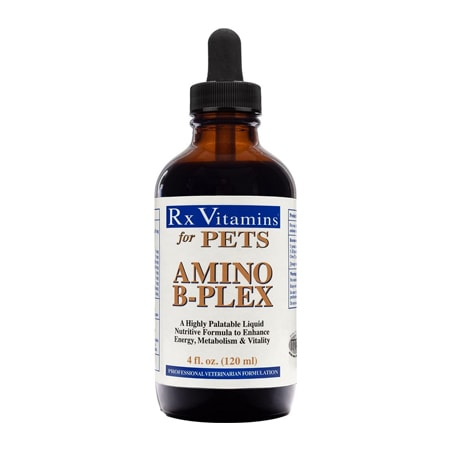
There are plenty of B vitamins on this list and we’ll go into them in more detail below as all B vitamins have their own special jobs. These all work together to support the nervous system, and make sure they have plenty of energy to chase around that pesky laser pointer.
Thiamine (Vitamin B1)
This plays a crucial role in a cat’s health and is vital for converting food into energy and properly maintaining nerve functions. Cats, unlike some other animals, can’t produce this on their own which means they need to get it elsewhere. A deficiency can lead to issues like loss of appetite, neurological issues, or even seizures.
Riboflavin (Vitamin B2)
This vitamin is just as important as the others, as it helps to break down proteins, fats, and carbs, helping your cat (and you!) in metabolizing their food into energy. It also helps with healthy skin, eyes, and fur. It’s important to make sure your cat is getting the proper amounts they need, but it’s not something you’d typically give as a stand alone supplement.
Niacin (Vitamin B3)
Cats can’t produce Niacin like some other animals and they need it for healthy skin, energy metabolism, proper digestion, and their nervous systems. For cats, it’s important for converting food into energy and a deficiency in Niacin can lead to weight loss, diarrhea, and death.
Pantothenic Acid (Vitamin B5)
This plays a critical role in things such as metabolism, breaking down fats, carbs, and enabling your kitty friend to harness the energy they need to take naps in sunbeams. It also helps in the form of an antioxidant for their skin and fur, chasing off those free radicals.
Pyridoxine (Vitamin B6)
Cats’ muscles can’t store B6 like other living beings can, so they need a constant source of this critical element. It’s especially important for things such as red blood cells and healthy immune functioning. B6 also helps with processing fats and proteins.
What Are Cat Supplements?
Cat supplements are specially planned products designed to help your feline friend with their health and well-being. These supplements for cats usually have targeted and specific issues they are trying to treat. They can address various needs, including digestive health, skin, and coat quality, joint support, and even more. Often available in chews, powders, and liquids, they’re a great way to ensure your cat gets the nutrients they might not get from their regular multivitamin or diet.
What Are the Types of Supplements for Cats?
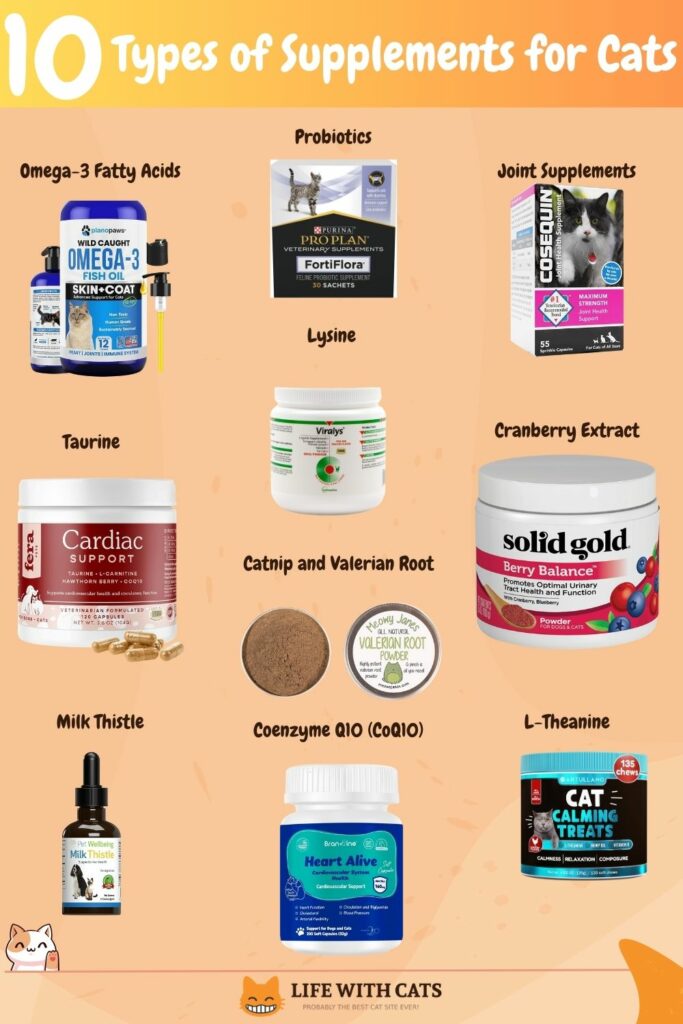
The good news is there are a lot of supplements out there for you to choose from. The bad news is… there are a lot of supplements out there to choose from. Whether your cat needs some joint support, or a skin and coat glow-up, there’s something for every kitty out there. And, just a heads up, how often you give these food supplements to your cat can vary–some are daily treats while others are more of an “as needed” deal. But remember, a quick chat with your vet can give you the best game plan.
Better Than Salmon Oil for Cats (omega fatty acids)
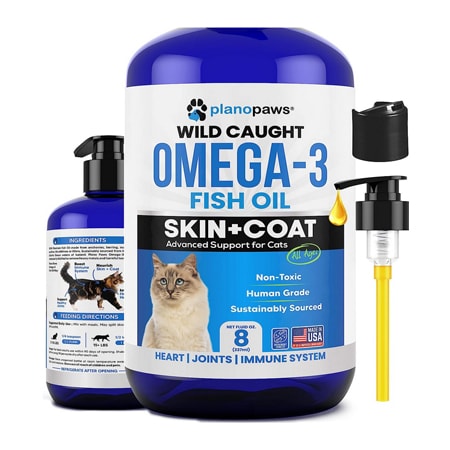
Check out this Better Than Salmon Oil for omega-3 fatty acids! Not only does fish oil help to reduce shedding, but it helps give your cat a nice shiny coat, too. Made from pure fish like anchovies, this fish oil comes straight from the crystal clear waters of Iceland. Don’t worry, though, it’s human-grade and free from any harmful toxins. Plus, it’s super easy to use–just a quick pump onto their food and voila! A simple and effective way to keep your kitty happy all year round.
Purina Pro Plan Veterinary Supplements FortiFlora (probiotics)
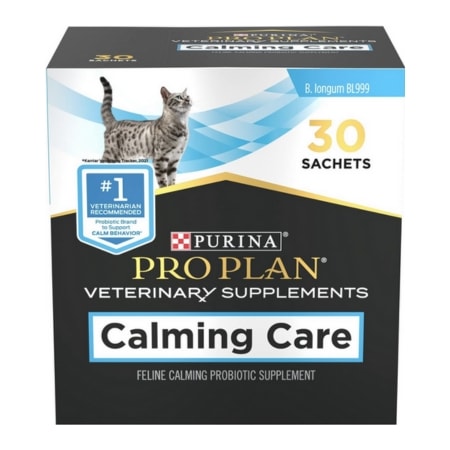
Fellow cat lover, if your cat is dealing with some tummy troubles, you’ve got to check this supplement out. It’s not just any supplement, but it’s a #1 vet-recommended probiotics for felines. It’s designed to manage digestive issues like diarrhea in both cats and kittens. What sets FortiFlora apart is its proven probiotics that help balance gut health. And there’s more! It also comes loaded with antioxidants to give your kitty’s immune system that extra oomph. Your cat’s gut will thank you.
Nutramax Cosequin Joint Health Supplement (Joint supplement)
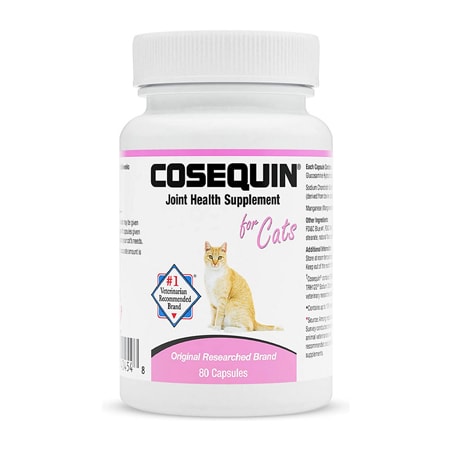
Cosequin is a game changer! I use it for my pets when they show their age. It’s the #1 vet-recommended joint health supplement, and it’s crafted to give your cat joints the TLC they deserve. They fill each capsule with the good stuff like glucosamine hydrochloride and sodium chondroitin sulfate. Not a fan of capsules? No worries, they’ve got some soft chews too! Your cat’s joints will thank you!
Fera Pets Cardiac Support Supplement (coenzyme Q10)
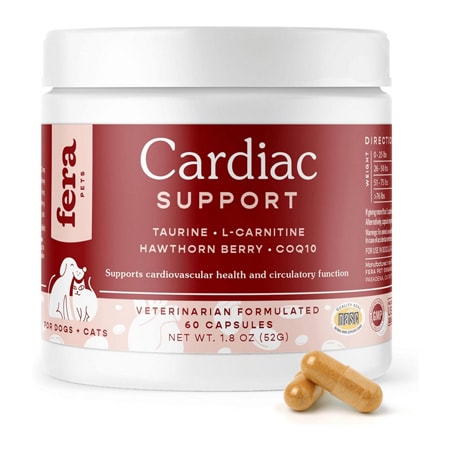
This supplement is like a love letter to your cat’s cardiac system, loaded with things such as taurine, l-carnitine, and coenzyme q10–plus a sprinkle of hawthorn berry and vitamin E. These salmon-flavored capsules work to strengthen their heart muscles, keep that blood flowing smoothly, and even help to reduce the risk of heart disease. And, they’re super flexible! Feed the capsule whole or sprinkle the powder on their food. Keep those tails and hearts happy!
Vetoquinol Viralys L-Lysine Supplement (L-lysine)
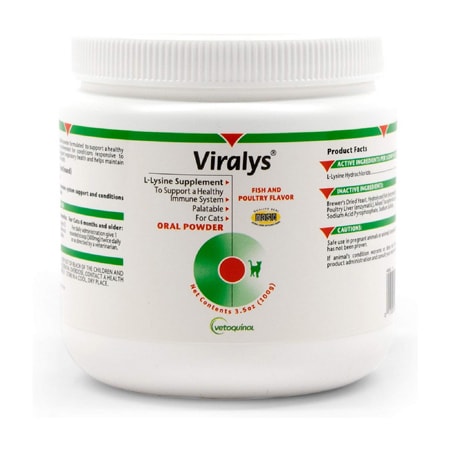
Do you have a cat with a pesky, watery nose or eyes? This L-Lysine supplement helps with that! Not only does it boost their immune system, but it also targets common feline sniffles like sneezing and respiratory issues. The best part? It’s very easy to give and thanks to its yummy fish or poultry flavor, your cat will gobble it right up. Whether you’ve got a spry kitten or a wise elder, the vet-recommended dosing will keep them healthy.
Solid Gold Cranberry Supplement (Cranberry Extract)
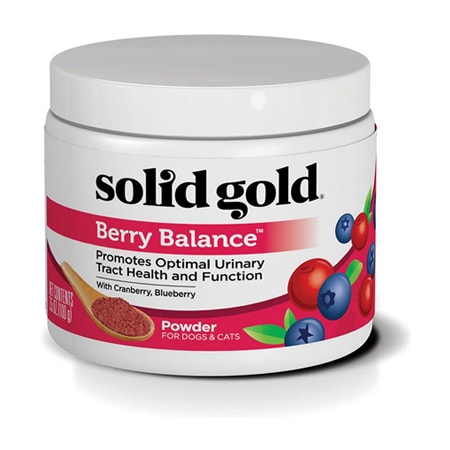
If your fur kiddo struggles with urinary issues, this powder supplement is a must-have. It’s packed with the goodness of cranberries and blueberries, chock-full of antioxidants and vitamin C, making it perfect for kidney and bladder wellness. This natural, holistic blend not only supports urinary tract function but also helps with bladder control. Just sprinkle the recommended dose on their favorite meal and you’re good to go!
Pet Wellbeing Milk Thistle for Cats (Milk Thistle)
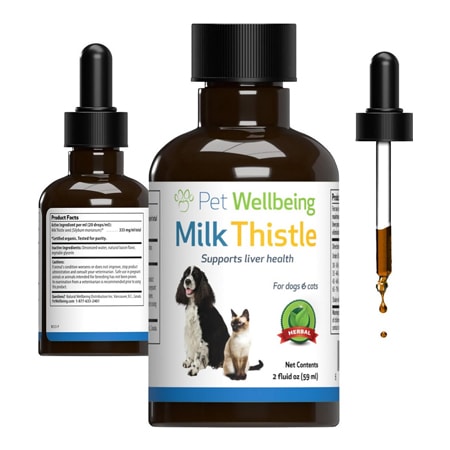
Worried about your furry friends as they age? I’ve got something that could make a world of difference. Milk Thistle supplements are a triple threat for boosting your cat’s quality of life! It’s a guardian angel for their liver, helping protect those liver cells from nasty toxins and free-radical damage. It’s also like a mini detox spa for your cat, aiding in getting rid of all kinds of toxins. Also, think of it as a liver rejuvenator–helping repair damaged cells and even encouraging the production of new healthy ones.
Hemp Cat Calming Treats (L-theanine)
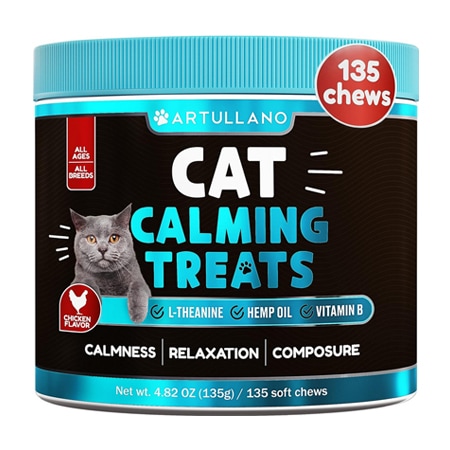
Is your cat a bundle of nerves sometimes? I’ve found something here that might help–calming cat treats. These cat treats can be a stress-buster and so much more! Not only do they help with the typical tension-causing scenarios your cat might find frightening like vet visits or travel, but they’re also packed with ingredients such as hemp and l-theanine that keep your kitty mellow. These are tasty in chicken and other flavors, offering benefits like better bone and muscle function, and they support heart, brain, skin, and nail health, too.
Branvine Heart Alive Cardiovascular System Health (Q10, coenzyme)
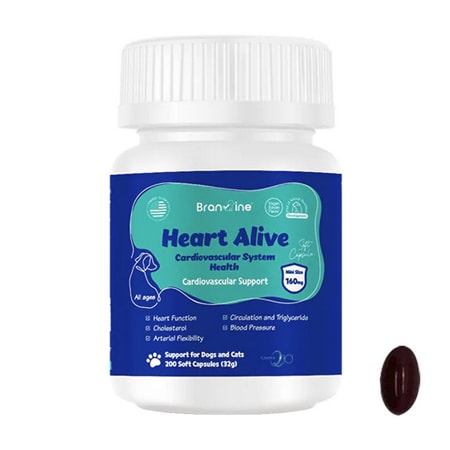
Hey you health conscience cat lover you! Looking for a holistic approach? This is an all-in-one product that has your cat’s heart health in mind. With ingredients like Kaneka Q10 for cardiac muscle energy, and Vivomega Norwegian fish oil for improved blood circulation, your cat’s heart is in expert hands. No worries if your cat is struggling with cholesterol or high blood pressure, policosanol balances cholesterol, while hawthorn berry extract lowers blood pressure. Vitamin K2 is the cherry on the top! It prevents calcium from building up in arteries. These are also vegan and have flavors your cats will love.
Meowy Janes Valerian Root Powder (Valerian Root)
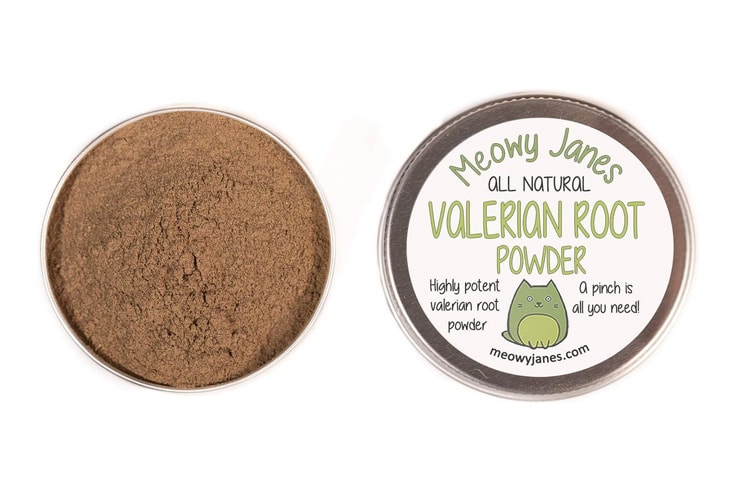
Looking to keep your fur baby entertained and stress-free? Check out this 100 percent all-natural Valerian Root powder. It’s grown with no nasty chemicals or fillers–just pure feline-friendly goodness. You’ll love the hand-packed small-batch freshness and the best part is a tiny pinch is all it takes to help soothe your cat’s anxiety or boredom and make for better play!
How Do You Choose The Best Cat Vitamins and Cat Supplements?
To choose the best cat vitamins and supplements, it’s important to start by consulting your vet, especially if your furry buddy has some health issues already. Look for reputable brands that offer high-quality, natural ingredients and avoid products with unnecessary fillers or artificial additives.
Whether you’re looking for a multivitamin for everyday wellness or targeted supplements like joint support or urinary health, opt for those that are age-appropriate, be it for kittens, adults, or seniors. Remember, the best supplements are those that complement a balanced diet and meet your pet’s unique needs.
Consult with a Veterinarian
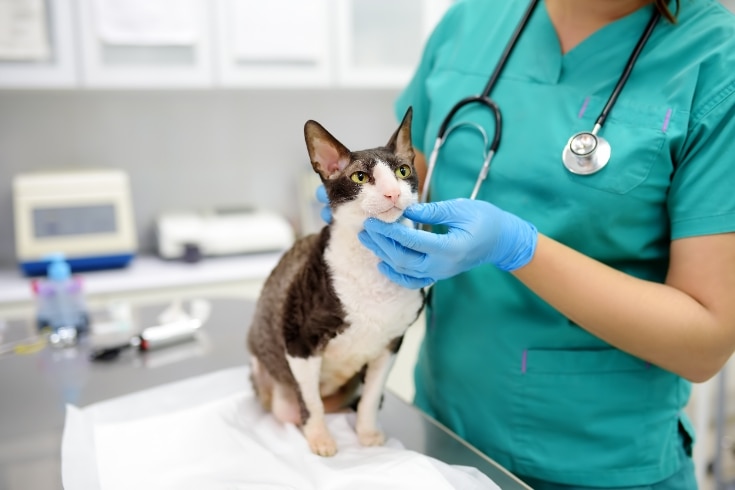
Before you dive into the world of vitamins and supplements, lets talk about your vet. A chat with your vet is a must-do as they can assess your cat’s overall health, identify any nutritional imbalances or gaps, and recommend the safest options tailored to your cat’s needs. After all, not all cats are the same, and what works for one might not for another. Plus, mixing supplements without professional guidance could lead to nutritional deficiencies or adverse reactions.
Look for Reputable Brands
Choosing a reputable brand for your cat’s supplements is like picking a five-star chef for your meals; you know you’re getting quality ingredients that meet high standards. Well-known brands often invest in research and quality control, ensuring that what’s listed on the label is the product in the bottle.
Understand Your Cat’s Needs
Understanding your cat’s specific needs before diving into the world of supplements is like reading a recipe before cooking–it’s important for a successful outcome. Each cat is unique, and what works for one may not work for another. For example, an indoor kitty might have different needs than an outdoor adventurer. Taking the time to identify what your cat needs before starting is vital to their health and happiness.
Choose Species-Specific Supplements
Choosing species-specific supplements for your feline friend is like picking out a tailored suit–it just fits better. Cats have unique nutritional needs that aren’t always met by diet and can differ from other animals. Getting supplements for cats makes sure that the dosages, ingredients, and nutrients are just right for them.
Read the Labels

Always, always read the labels! This is just as important as making sure you know what your cat needs before starting a routine. If you’re not sure of an ingredient, look it up. Beware of fillers.
Consider the Form of Supplement
If you have a picky cat that doesn’t like to take pills, consider looking for vitamins or supplements that are in liquid or powder form. These are easily sprinkled over their favorite meal and isn’t as messy as trying to pill a cat (fewer scratches, too!).
Age-Appropriate Supplements
No matter your furry friend’s age, it’s good to make sure when giving them anything vitamin or supplement-wise that it’s appropriate for their age. You don’t want to give senior meds to a kitten, or vice versa.
What Are the Things to Consider When Giving Your Cat Vitamins or Supplements?
The things you should consider when giving your cats vitamins or supplements, think of it as a personalized program on their wellness journey. Consult your vet to identify any specific needs or deficiencies your cat may have. Then, opt for reputable brands that have been vetted for quality and safety. Make sure the supplements are specifically formulated for your cat since their nutritional needs are unique to them.
Always follow the recommended dosage and keep an eye out for any changes in their behavior or health. Remember, your pet’s health is a team effort making you the MVP of the game!
Quality and Safety
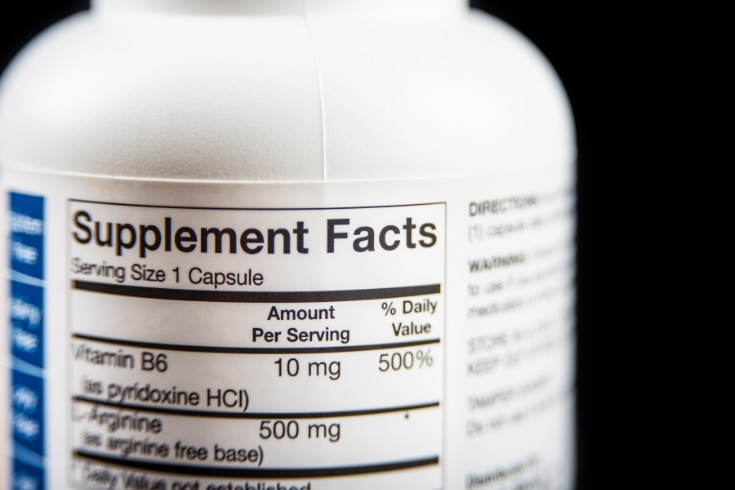
Quality and safety are a non-negotiable thing. Choose supplements from reputable brands that undergo testing for purity and effectiveness. Look for products that are transparent about their ingredients, and that have received excellent reviews from both professionals and pet parents.
Species-Specific Formulation
Understanding your fuzzy buddy’s unique nutritional needs is crucial when looking at supplements. Aim for species-specific formulas designed just for cats, as their requirements differ from those of other pets. These consider everything from your cat’s metabolism to their specific health concerns.
Appropriate Dosage
For your cat’s well-being, the right dosage can make all the difference. It’s important to closely follow the dosage instructions from either your vet or the supplement itself. Remember, more doesn’t always mean better in these cases. Giving your cat the correct amount makes sure they get the proper nutrients with no drawbacks.
Age and Life Stage
Whether you have a playful kitten or a wise old kitty, their nutritional needs can vary significantly. It’s always best to opt for products that are tailored to your feline friend’s specific life stage so they’re getting what they need.
Compatibility with Diet
In choosing the right vitamins and supplements for your cat, it’s important to consider their current diet. If your friend is already on a specialized diet, you’ll want to make sure that any additional supplements won’t interfere with the nutrients they’re already getting.
Individual Health Needs
Whether it’s a focus on joint health, improving coat quality, or boosting the immune system, the supplement you choose should go with what your cat requires. A one-size-fits-all approach doesn’t work for any living being, so it’s a good idea to know your cat’s medical history and consult your vet for professional advice.
Cat Vitamins and Supplement FAQs
What Nutrients Do Cats Need
Essential nutrients such as taurine, arachidonic acid, and Vitamin A are necessary for cats because they cannot produce them internally. Cats require a balanced diet rich in protein, fats, and carbohydrates to meet their nutritional needs.
Why Do Cats Like Vitamin E Oil
Cats are attracted to this because it often has a meaty aroma. Beyond that, it’s great for their skin and coat, providing nourishment and promoting overall well-being.
How To Help My Cat Gain Weight
Trying to help your cat gain weight? If your kitty needs a few extra pounds, there are several things that can help here such as high-calorie treats and gels. If your cat is losing weight, though, and it’s not explainable, please consult your vet as this can be a case of underlying issues.
How to Boost Your Cat’s Immune System
A diet rich in antioxidants, vitamins, and high-quality protein can do wonders for your cat’s immune system. Make sure you’re providing them with a balanced diet rich in essential nutrients, too. Things such as taurine, omega-3 fatty acids, and antioxidants are all an important part of their diet to boost their immune system.
How To Improve Cats Coat
A shiny coat starts with a good foundation and good nutrition. Foods rich in Omega-3 and Omega-6 fatty acids or specialized supplements can make your cat’s fur extremely healthy!
How can I safely introduce vitamins and supplements into my cat’s diet?
Have a chat with your vet before starting your cat on any vitamins or supplements. Start with small doses and monitor your cat for any negative reactions. Remember, quality matters here, so get those reputable brands!
Conclusion
Choosing the right vitamins and supplements for your cat is crucial for their health. Always consult with a vet before starting any new regime so you can understand your cat’s specific needs, get the correct dosing instructions and when to give them to your cat.
Choose high-quality, species-specific formulations that provide the proper balance of protein, fats, and essential nutrients like Taurine. These additions to your pet’s diet, including omega fatty acids for coat enhancement, can significantly impact their health. Whether it’s age-specific or tailored to specific dietary requirements, ensure you have the necessary knowledge.